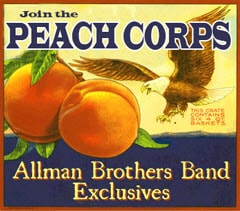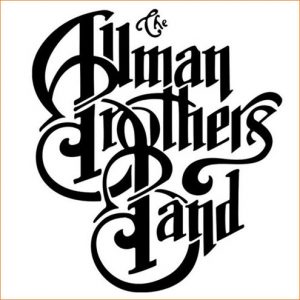
By: Jim Farber
For: The NY Daily News
Gregg Allman doesn’t like to mention ex-Allmans guitarist Dickey Betts when he does an interview these days, yet he can’t avoid alluding to him over and over. When Allman talks about the band’s difficulty in writing material during the past decade, or his dissatisfaction with some recent live tours and releases, or even the basic ability of the musicians to function as a group, he hems and haws in assigning blame.
But eventually he says, “Let’s just put it this way. It seems like some dark cloud has moved away and it’s back to business as usual.” It isn’t hard to figure out the identity of the “dark cloud” he refers to.
The Allmans expelled Betts, the band’s original guitarist, in 2000, citing an alleged drinking problem. At the time, Allman said, “It’s amazing how one person’s disease can affect the band so much.” Betts vigorously denied the characterization. He continues to tour with his own band. While the split was first described as temporary, Allman now labels Betts’ ouster “liberating” and says a reunion is “very unlikely.”
With Betts gone, the Allman Brothers has managed to record its first full album of new material in nine years, “Hittin’ the Note,” which will be released March 18. It’s also set to play 13 shows at the Beacon Theatre, starting Thursday, with dates running through March 30.
It’s the 14th year this legendary Southern blues band has performed its marathon upper West Side concerts. But an album recorded during its stint at the theater two years ago is part of what convinced Allman that Betts had to go.
“When we put out ‘Peakin’ at the Beacon,’ we thought it should be called ‘Reekin’ at the Beacon,'” says Allman with a laugh. He adds that the band’s record company, Epic, issued the CD against its wishes. It later left Epic to ink a deal with Sanctuary Records, an indie favored by older groups.
It couldn’t have been easy to fire Betts, someone who had written and sung some of the Allmans’ most beloved material — from “In Memory of Elizabeth Reed” to “Ramblin’ Man.”
At first, Betts was replaced with Jimmy Herring ( who later subbed for Jerry Garcia in the Grateful Dead replacement band the Other Ones). But Allman says the band didn’t really get its creative juices flowing again until the return of Warren Haynes in the lead guitar slot. Haynes, who occasionally fronts the jam band Government Mule, had previously filled in with the Allmans in the mid-1990s.
“When Warren and I got together, we wrote really good things for this record,” Allman explains. “Before it was like pulling teeth [to write].”
The gruff-voiced singer-keyboardist admits that another factor in the Allmans’ paucity of new recordings was his own drinking. He didn’t get sober until 1996. “Cigarettes and liquor are slow death,” he says. “I just realized I can’t do it.”
Allman credits being sober to his wife of the past 2 1/2 years, Stacey Fountain. It’s his fifth marriage (including a famously troubled one in the ’70s to Cher, with whom he has a son, Elijah Blue).
Allman has another son and two daughters from various relationships, but he calls his current marriage “the first one worth a damn.” He gains further strength for sobriety, he says, “from music itself.”
Allman says he worked with a new intensity for “Hittin’ the Note.” It was recorded in 20 days — the fastest in the band’s history.
Besides Haynes and Allman, the players on the album include guitarist Derek Trucks (nephew of drummer Butch Trucks), rhythm man Jai Johanson, percussionist Marc Cuinones and bassist Oteil Burbridge. Other than Allman, Johanson and Trucks are the only members who played on the band’s 1969 debut.
While Allman says he considers the new album the group’s best since 1972’s “Eat a Peach,” its songs hardly have the same stellar quality. Where the CD soars is in its jams. All the cuts feature pitched and erudite playing. As one of the granddaddies of jam bands, the Allman Brothers is also one of few acts that can wade into oceanic solos without losing melodic ground.
“If you played the same songs the same way every night, it would drive you bonkers,” says Allman. “This way, the music can still go to places that surprise everybody.”
To keep on his toes, the 55-year-old Allman approaches long stints like the one at the Beacon a different way. “I work out now, and get a lot of rest. I don’t go out like we did.”
While the Allmans could headline two Madison Square Garden dates and play for as many fans as it will in 13 Beacon shows, the keyboardist says he prefers “the intimacy of this crowd, and the sound of the place. It’s a good old 1920s opera house, like the Fillmore.”
Of course, that storied theater is where the Allmans recorded the 1971 live double album that cemented its reputation. The Fillmore shows established New York as the band’s strongest fan base, outdrawing even its Southern home. While Allman says his band hopes to keep playing the Beacon runs — and tour nationally — he begs to differ with the title of a famous old Allman Brothers album: “The Road Goes on Forever.” “Nothing lasts forever,” he says.
Clearly, that goes for friendships as well as health. But despite the band’s sad partings, and advancing age, Allman says the group has a will to endure that draws from the genre that first inspired it: the blues.
“It’s been said that blues is the roots and everything else is the fruit,” says Allman. “To me, that says it all.”



